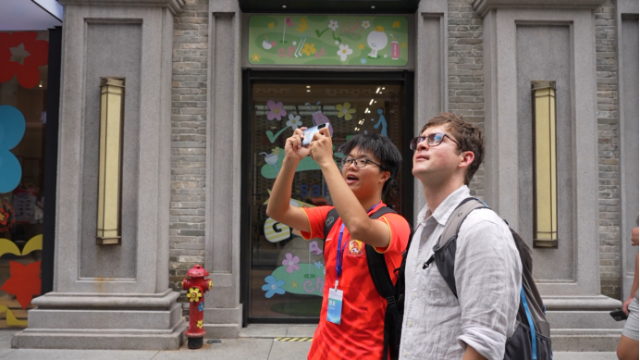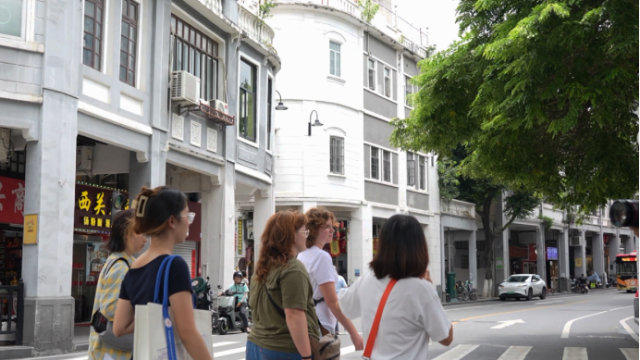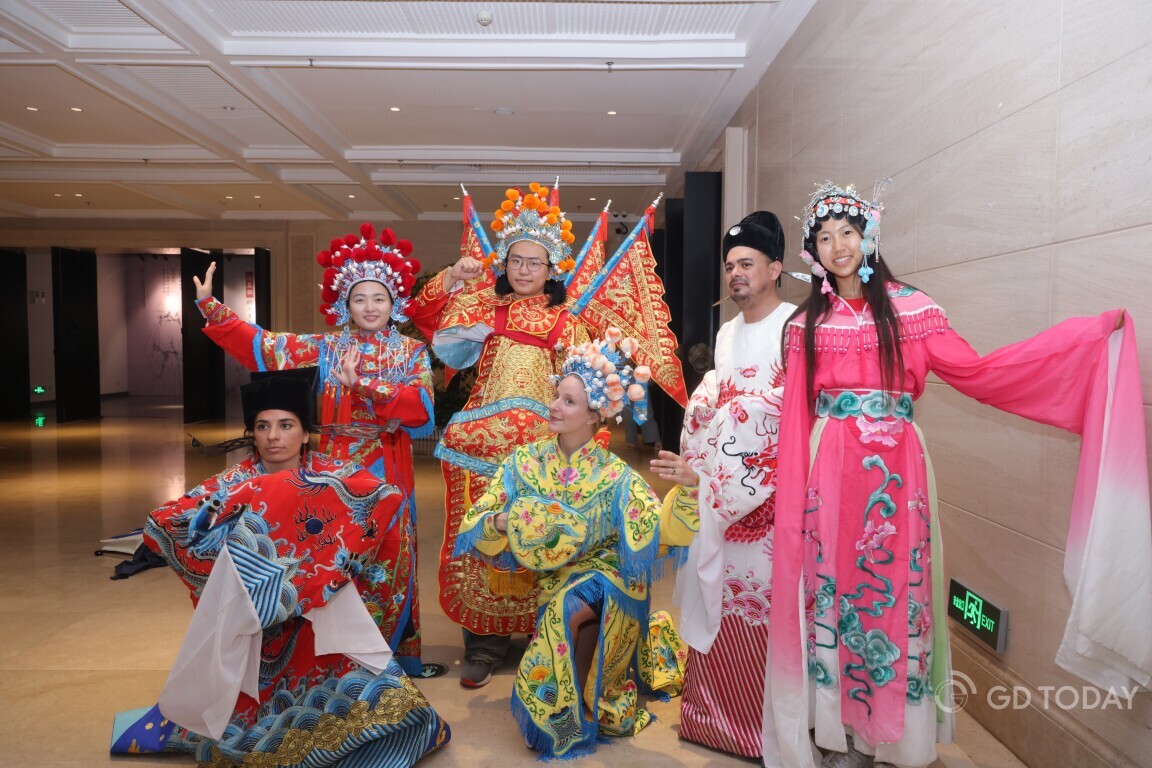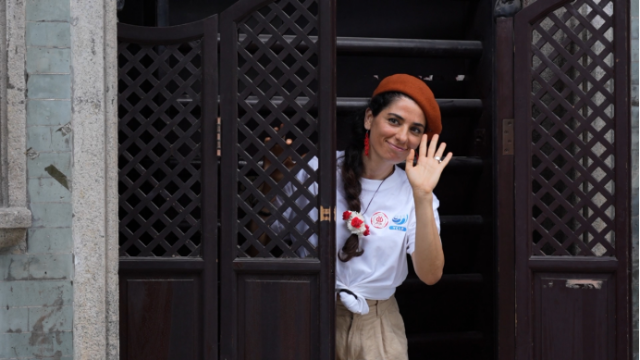On June 19, 47 college students from China and the United States embarked on a cultural exploration in Guangzhou as part of the 2025 China-U.S. Youth Future Climate Leadership Exchange Program (YCLP). The delegation experienced traditional Lingnan architecture, Cantonese cuisine, and Cantonese Opera, deepening mutual understanding through immersive activities.
For many U.S. delegates, the visit offered transformative perspectives. Elisa Halma, a doctoral candidate at Yo San University of Traditional Chinese Medicine, expressed her awe: "The ecology is incredible to explore in China." Visiting Asia for the first time, she noted, "I'm really happy that the first country I visited is China."
Particularly struck by Guangzhou's Liwan District, she observed: "It has old that meets new. We've been reading about this history in textbooks in Los Angeles, and suddenly it's right here. I'm trying to detect: where is this building from? What styles does it emulate?"

Students visit the scenic Yongqingfang in Guangzhou
The program blended cultural immersion with sustainability studies. Delegates toured the China Southern Airlines headquarters, examining Guangdong's innovations in aviation sustainability, including emission cuts, energy efficiency, and green transition initiatives.
UC Berkeley graduate Lia Gabriela Flores Palacios highlighted China's systematic efficiency: "I feel China’s systems like water treatment plants, energy, electric cars, and housing are very efficient." The Mexican-American student aims to "bring these insights back to Mexico" and incorporate them into green tech studies.

Students view Lingnan architecture during their trip in Liwan District, Guangzhou.
Younger participants emphasized generational shifts in global perspectives. Katelyn Van Andel, an Environmental Economics undergraduate at UC Berkeley, observed: "Our group is really eager to not only make friends with local students at Guangdong University of Technology (GDUT) but also have an open mind about the technology and policies China is implementing." She added that the trip exposed her to "innovative technologies that affect our everyday life," citing recreational spaces integrated into facilities like water treatment plants.

Students from the US try on costumes for Cantonese opera
Cultural highlights included the Cantonese Opera Art Museum in the revitalized Yongqingfang historic district, where students tried on traditional opera costumes. The experience prompted broader reflections on U.S.-China relations. Flores Palacios suggested: "If more Americans had a trip like this, they would absolutely love China... It changes your trajectory and gives you emphasis you can carry through life." Halma connected cultural literacy to her medical studies: "To understand Chinese medicine, you must grasp the culture's hermeneutics, customs, and religions."

Natalie Vie, a doctoral candidate at Yo San University of Traditional Chinese Medicine, tours a traditional residence in Guangzhou
The Guangzhou leg concluded with delegates gaining tangible appreciation for how cultural heritage and sustainable innovation coexist in modern China – insights they now carry forward as future climate leaders.
Reporter: Guo Zedong
Photo: Liang Zijian
Video: Liang Zijian
Video cover: Liang Zijian
Editor: Yuan Zixiang, James, Shen He
















